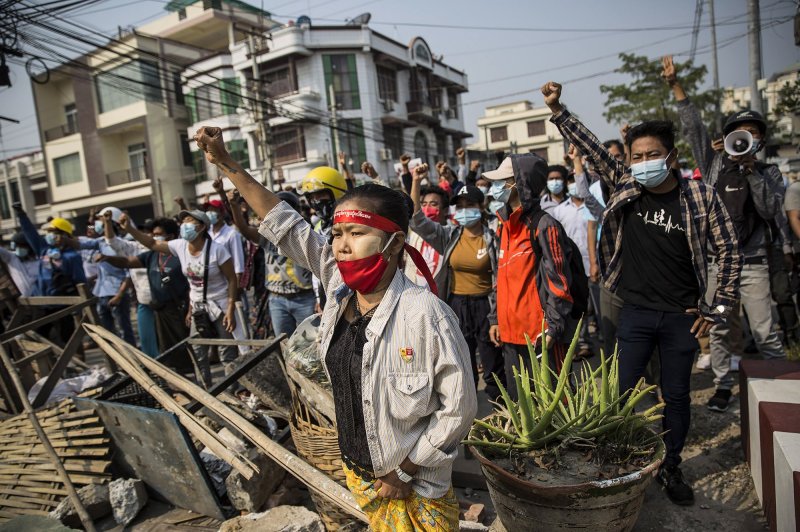BY JOSH RITCHIE
Last Updated Sep 22, 2021
CALGARY — It didn’t take long for reaction to roll in after Jason Kenney shuffled his cabinet on Tuesday.
The cabinet shuffle was quick and saw former Health Minister Tyler Shandro shifted to be the new minister of labour and immigration.
While the man who held that role for the last two years, Jason Copping, was sworn in as the new minister of health.
Opposition NDP Leader Rachel Notley says swapping two ministers doesn’t change the fact that Jason Kenney is still the premier.
“Even if Jason Kenney were to step down, it doesn’t change the fact that the UCP has proven fundamentally that they cannot provide a responsible government for Albertans in a life-threatening pandemic,” said Notley.
She adds that while she isn’t sure if Tyler Shandro actually resigned from his position or not, the current issues the government face go beyond the former health minister.
Meanwhile, the Alberta Union of Provincial Employees (AUPE) welcomed seeing someone new take on the role of health minister.
“Good riddance,” said AUPE Vice-President Susan Slade. “Tyler Shandro set fire to Alberta’s health care system and hung Albertans out to dry throughout the COVID-19 pandemic. It’s past time for him to suffer some consequences for his actions.”
In a release, AUPE says members recently obtained more than 1,299 online signatures calling for Shandro to resign.
Slade says Kenney’s cabinet shuffle is an attempt for the premier to salvage his reputation and echoed Notley in saying that, this is still a government run by Kenney.
“This is still Kenney’s government,” she said. “This does not erase how he has mistreated and attacked health care workers. Doctors won’t forget. Nurses won’t forget. Support services won’t forget. Patients won’t forget.”
Slade added that there are still some blemishes on Copping’s record, which include “regressive changes to workers’ compensation and legislation that could shut down protests against the government.”
“AUPE members are ready to defend themselves and all Albertans, regardless of whomever Kenney appoints,” she said. “When workers are under attack we stand up and fight back.”
Tyler Shandro and Jason Copping swap cabinet positions
Labour and Immigration Minister Jason Copping will take over the health portfolio this afternoon
Author of the article: Ashley Joannou

Tyler Shandro is no longer Alberta’s health minister after more than a year of heavy criticism over his handling of the portfolio.
Shandro was shuffled out at a short ceremony Tuesday afternoon, swapping roles with former labour and immigration minister Jason Copping who now takes over the health ministry.
Media was not invited to the ceremony, which was broadcast online. At a press conference later in the day, Premier Jason Kenney said Shandro offered his resignation from the health role and that both he and Shandro agreed it was time for a change.
“It is time for a fresh start, and a new pair of eyes on the largest department in the government, especially at a time such as this,” Kenney said, adding that it has been a “gruelling” file for Shandro.
Shandro had repeatedly faced calls to resign as health minister amid the COVID-19 pandemic and a protracted dispute between the government and doctors.
NDP Leader Rachel Notley — whose party had made those calls — said the news of Shandro’s shuffle was “welcome” but not a solution to the crisis going on in Alberta hospitals, which are overwhelmed by COVID-19.
“A cabinet shuffle will not ease the immense pressure on our hospitals from this severe fourth wave. It won’t reschedule the life-saving surgeries of thousands of Albertans. It won’t recover our economy. And it won’t help everyday families looking for leadership. Albertans deserve better.”
As newly-minted health minister, Copping said his focus will be on increasing hospital capacity, educating vaccine hesitant Albertans and preparing the health-care system for potential future waves of COVID-19.
“I stepped into this role, resolutely committed to building immediate capacity. However, we also know that COVID-19 is not likely to go anywhere, anytime soon,” he said.
Shandro’s departure comes as the province grapples with the fourth wave of COVID-19, which has put heavy pressure on the health-care system, particularly in intensive care units, leading to the cancellation of all surgeries that are considered non-essential and calls for other provinces and the federal government to help
Kenney under fire
It also comes as Kenney faces internal conflict over the government’s handling of the COVID-19 pandemic. On Tuesday, a senior member of the UCP called for his resignation, days after asking the UCP board to hold an emergency meeting to discuss an early leadership review.
Mount Royal University political scientist Duane Bratt said Tuesday that he doesn’t think swapping Shandro for Copping will be enough to quell the discontent Kenney is facing.
“I don’t think he could have done anything to keep his job. I mean, Shandro is being removed why? Because he implemented exactly what the premier wanted him to do,” he said.
Ahead of a caucus meeting scheduled for Wednesday, Kenney said he believes he still has the support of the members of his party, caucus and party board.
“There have been a voices of opposition to public health policies from within my own party from day one of the pandemic. It’s not a secret. But my responsibility as premier is to listen to public health advice, look at the reality, not wish it away, not allow politics to pressure us from taking the necessary steps to save lives and protect the health-care system,” he said.
Bratt also said he believes moving Shandro off the health file has been in the works for some time but that Kenney held off until after Monday’s federal election to avoid doing more damage to the federal Conservatives.
When questioned multiple times by reporters about the timing of Shandro’s move, Kenney repeated that the pair decided that it was time for a “fresh set of eyes” and said the government is focused on getting through the fourth wave of the pandemic, not on politics.
‘Good riddance’: AUPE
Shandro was regularly at odds with the province’s health-care associations and doctors, leading to the multiple calls for his resignation.
In March, 2020, after Shandro took fire for confronting a Calgary doctor in his driveway over a social media post, Kenney rejected such calls, saying it was understandable Shandro became “passionate” in defending his spouse.
After doctors voted down a contract offer from the province in April 2021, Kenney rejected calls to fire him, saying he had his “full, 100 per cent confidence.”
Dr. Paul Boucher, president of the Alberta Medical Association, said that while there has been challenging times during negotiations, he appreciates Shandro’s “efforts to improve the relationship with physicians in recent months.”
“I wish him well. We look forward to continuing with his successor our current efforts to solidify the relationship between government and the medical profession,” he said in a statement Tuesday.
In 2020, the government said it would be cutting 11,000 Alberta Health Services jobs mostly by outsourcing positions in laboratories, housekeeping, food services and laundry. The change is estimated to save $600 million annually.
The Alberta Union of Provincial Employees (AUPE), which has raised the alarm about the outsourcing, welcomed the news of Shandro’s departure.
“Good riddance,” said Susan Slade, AUPE vice-president, in a statement. “Tyler Shandro set fire to Alberta’s health-care system and hung Albertans out to dry throughout the COVID-19 pandemic. It’s past time for him to suffer some consequences for his actions.”
Kenney, meanwhile, thanked Shandro for his service and called him “one of the hardest working people I’ve ever known.”
The AUPE and Friends of Medicare criticized Copping for a piece of legislation he tabled last year limiting presumptive coverage for psychological injuries to only firefighters, police officers, peace officers, paramedics, corrections officers and emergency dispatchers.
Friends of Medicare also condemned a call his local constituency association made for the government to “support the option of a privately-funded and privately-managed health-care system” during the UCP’s 2020 convention.
Slade claimed moving Shandro is Kenney’s attempt to salvage his reputation by giving the impression of a fresh start for his government’s management of the health-care file.
“This is still Kenney’s government,” she said. “This does not erase how he has mistreated and attacked health-care workers. Doctors won’t forget. Nurses won’t forget. Support services won’t forget. Patients won’t forget.”
– With files from Lisa Johnson
















